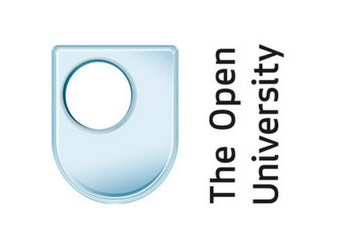

Open University - OU
speciality: Medicine
What Is a Medicine Degree?
Saving someone’s life is perhaps one of the most remarkable feelings in the world. Even so, not so many of us have the chance to experience this. It takes passion, a strong personality and years of study to be able to work in the medical field.
Pursuing a Medical degree is not only challenging and demanding but also competitive. Medical degrees are shaped for people who show high motivation and commitment as well as interest for sciences.
Throughout a Medicine degree, candidates are equipped with a wide range of competences, from practical abilities required for specialized hands-on tasks to communication skills needed to interact with the patients. Thus, any medical students will be able to take a simple blood sample as well as perform a complex surgical procedure.
Benefits of a Medical Degree
Undoubtedly, medicine is one of the most vital fields of work – therefore there will always be a high demand of workforce needed. The employment rate for a medical graduate student is of 90%.
Due to its diverse branches, graduates from a Medical course have a variety of career choices, according to their expertise. Nursing, radiology, anaesthetics are just some of the many specialities offered in this field. Regardless of the speciality, the most important aspect needed to be taken into consideration is that medical professionals are well-respected and well-paid all over the world.
Additionally, graduates possess a series of transferable skills, such as logical reasoning, critical appraisal, listening, written and oral communication and many others. These assets are sought and highly valuable in most fields of work.
Medical Degree Structure
Medical courses are usually a six-year commitment, but it can vary according to the university. Most of the modern universities integrate clinical education with basic sciences from the beginning of the academic curriculum, while traditional institutions divide them into preclinical and clinical education.
Most schools understand the importance of practical knowledge, especially in this field, therefore they encourage the students to observe professional healthcare practitioners. Another way to gain practical experience is to go to different clinics and receive specialised training, followed by actual practical work.
No matter the practices of the university, always keep in mind that medical courses are structured differently in every country. Therefore, medical qualifications gained in one country are not necessarily recognised in another country.
1 Student Reviews
Filter reviews-
Health Science01 Jul, 2022LorenaEasy and convenient but severe lack of training.
All of the modules in the BSc (hons) Health Sciences degree program covered important topics that society cares about, from anatomy to molecular biology, so it was very comprehensive. The assignments were fair and presented clear and straight-forward instructions. I didn’t have a problem with any of the marking. The classes were all online, using a very practical platform and overall each session was very easy to follow, with many opportunities to chime in and present questions live. The teachers were mostly friendly, helpful and responsive to all needs. In my experience they all were understanding if I had to extend the deadline.
The online portal and platform were probably the best part for me, with access to thousands of resources and online module material.
What I wasn’t satisfied with was the lack of practical training and also the lack of examination centres. The home experiments were few and far between, and even though they taught a lot about scientific method and practice, the practical learning stopped there. So I felt it was unfair and left very little to show in my curriculum, which really narrowed my chances in the job market, even for entry-level jobs. It hardly helped my career prospects at all, sadly.
The way I would improve this is by arranging proper work experience placements for all Open University students and enable more brick-and-mortar examination centres.
Finally, the student life is very comfortable as my course was fully online and there were many international students in my class groups.
Would I recommend this course? Yes, but not for those who are serious about doing field work, such as working in a lab-based environment.
View moreProgramme: Health ScienceDegree: Bachelor'sGraduation: 2017Delivery Type: Online

